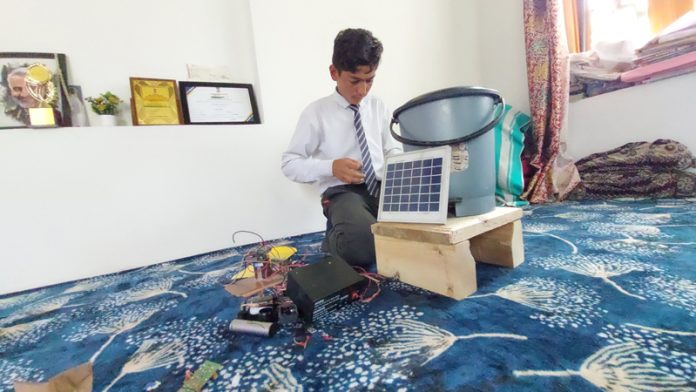
A few days ago, a man drowned in the Ganga . What was noteworthy was not the fact that unlike the more hapless victims sacrificed to the unfeeling river goddesses and gods each year, this quotidian event only made headlines because he was a senior bureaucrat . Instead, his death should bring to our attention how far the quality of money strains the value of life.
Aditya Vardhan Singh, deputy director of UP health department , drowned because he was caught in the vice of a current. Three friends reportedly tried to coax divers to rescue him. They demanded ₹10k.

Not having ready cash available, one of Singh's friends attempted a UPI transfer. But by the time this was completed, the struggling victim disappeared. In this instance, an unwillingness to extend aid resulted in the most extreme rejection of a debt obligation, doubly unfortunate because it also denies that we are all debtors and creditors simultaneously.
Not just in the act of giving and receiving favours or promises from acquaintances and strangers, but also in the daily act of buying and selling goods and services to continue with life. In ancient times, all commerce was conducted - as it is today - on credit . One good turn, like taking a sick person's place at the mill for a week or handing over a sack of grain to a family in need, was returned in kind upon demand or after an agreed upon interval.
In short, debt was a bilateral affair, never letting us forget our common human condition. Then, some 27 centuries ago, the first avatar of money appeared as coinage in Asia Minor. Almost overnight, a mix of gold and silver discs took root as a medium of exchange.
The concept allowed a pressing concern to be optimised: not the problem of barter - a teleological invention of Adam Smith's smoky imagination - but the hiring and paying of mercenaries by governments and kings, for wars in foreign lands. Artificial Intelligence(AI) Java Programming with ChatGPT: Learn using Generative AI By - Metla Sudha Sekhar, Developer and Lead Instructor View Program Artificial Intelligence(AI) Basics of Generative AI : Unveiling Tomorrow's Innovations By - Metla Sudha Sekhar, Developer and Lead Instructor View Program Artificial Intelligence(AI) Generative AI for Dynamic Java Web Applications with ChatGPT By - Metla Sudha Sekhar, Developer and Lead Instructor View Program Artificial Intelligence(AI) Mastering C++ Fundamentals with Generative AI: A Hands-On By - Metla Sudha Sekhar, Developer and Lead Instructor View Program Artificial Intelligence(AI) Master in Python Language Quickly Using the ChatGPT Open AI By - Metla Sudha Sekhar, Developer and Lead Instructor View Program Office Productivity Zero to Hero in Microsoft Excel: Complete Excel guide 2024 By - Metla Sudha Sekhar, Developer and Lead Instructor View Program Astrology Vastu Shastra Course By - Sachenkumar Rai, Vastu Shashtri View Program Data Science SQL for Data Science along with Data Analytics and Data Visualization By - Metla Sudha Sekhar, Developer and Lead Instructor View Program Web Development A Comprehensive ASP.NET Core MVC 6 Project Guide for 2024 By - Metla Sudha Sekhar, Developer and Lead Instructor View Program Office Productivity Mastering Microsoft Office: Word, Excel, PowerPoint, and 365 By - Metla Sudha Sekhar, Developer and Lead Instructor View Program Marketing Digital marketing - Wordpress Website Development By - Shraddha Somani, Digital Marketing Trainer, Consultant, Strategiest and Subject Matter expert View Program Web Development Mastering Full Stack Development: From Frontend to Backend Excellence By - Metla Sudha Sekhar, Developer and Lead Instructor View Program Finance Financial Literacy i.
e Lets Crack the Billionaire Code By - CA Rahul Gupta, CA with 10+ years of domain experience, trainer View Program Leadership Business Storytelling Masterclass By - Ameen Haque, Founder of Storywallahs View Program Marketing Future of Marketing & Branding Masterclass By - Dr. David Aaker, Professor at Haas School of Business View Program HR Human Potential and the Future of Employment By - Lynda Gratton, Co-chair of the World Economic Forum Council on Work, Wages and Job Creation, Professor of Management Practice View Program Strategy ESG and Business Sustainability Strategy By - Vipul Arora, Partner, ESG & Climate Solutions at Sattva Consulting Author I Speaker I Thought Leader View Program Finance Financial Reporting and Analytics By - Dr. C.
P. Gupta, Professor: Department of Finance and Business Economics, University of Delhi View Program It was this sudden transformation of a unit of account (on which any system of credit is based) of government debt into a medium of exchange that allowed for the development of open markets - where trust resides in a sovereign guarantee - and from there, the concept of money as a store of value. In retrospect, it seems fitting that the payout to a mercenary was a detached affair, a debt paid by the faceless office of a sovereign entity, in coin, rather than by the willing hand of a human being, in kind.
But this first degree of separation , when extended across all forms of exchange, both private and public, made being in debt a cold, impersonal, even publicly shameful act, where bilateral understanding was replaced by a creditor's desire to guard against not realising his money's worth. When taken to its natural limit, this attitude could result in fatal consequences. Circa 1660, Margaret Sharples, an Englishwoman, bought 22 shillings worth of cloth from a merchant to sew herself a petticoat.
Money being scarce in England at the time, she presented the seller 4 shillings and 9 pence, and a hamper of goods for the balance 'as a pawn for security of the money'. But the merchant, unwilling to accept this form of payment, and unwilling to brook a delay in the completion of his sale, legally prosecuted his case to be paid in coin. As a result, Sharples was hanged.
Since that time, every subsequent degree of separation - coins to banknotes, banknotes to bank tokens, and now widespread digitalisation - has made the payment of debt more transactional because we are trained to see the worth of our interactions as no more than the face-value of an obligation, guaranteed and controlled by a set of intermediaries. Why, then, should a drowning man elicit more pity from a professional diver than a defaulting farmer contemplating suicide from a bank? It is time for us to reassess how many degrees of separation we are willing to embrace in the name of values like speed, convenience, and automation. Otherwise, the quality of mercy may forever be strained.
.














